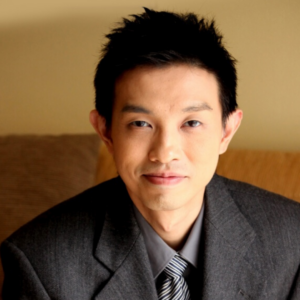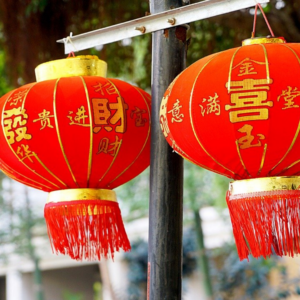Becoming a Christian when nobody else in your family is a Christian can be difficult whatever your culture, but for Chinese believers there is an additional hurdle. Chinese communities have a strong tradition of ancestor worship, under which the living are responsible for caring for their relatives after death. Parents whose children become Christians often worry that their son or daughter who no longer accepts their beliefs won’t look after them in the afterlife. If families of Christian converts are to embrace the change in their loved one, Chinese pastors and evangelists need to be equipped to handle this issue with sensitivity.

Dr Hann Tzuu Joey Tan is a Langham Scholar and Director of the Research Centre at Malaysia Bible Seminary and is preparing to publish the fruits of a seven-year research project into contextualised preaching for the Chinese community, particularly focused on the major Chinese festivals. The research asks how those preaching in Chinese contexts can draw on the beliefs behind Chinese festivals to illustrate Christian faith in a way that will resonate with their congregations.
“I am always thinking about how I can apply my research to help me and others become better preachers.”
Chinese by birth, Tan grew up in Malaysia and now teaches full time at the Malaysia Bible Seminary. Each year he visits Tyndale House in Cambridge for a time of concentrated research. “I come to write my theological reflections, because I can find almost any book I want.” Even when he returns home he is still able to use resources from the library through the Tyndale House scanning service, which supports overseas scholars by providing access to materials in the collection.
He also pastors a church of Chinese believers and is passionate about using his research to equip church leaders. “I am always thinking about how I can apply my research to help me and others become better preachers.” For this project he interviewed six Bible teachers whom he considered to be the best at using Chinese festivals to talk about Christian faith. “I wanted to learn from their experience and understand what they think is the most effective way to preach during these festivals.”
Harmony and Shalom

The central festival in the Chinese calendar is Spring Festival, or Chinese New Year. “Spring Festival has a similar status to Christmas in the UK, it’s the biggest festival and the most important one.” Celebrations revolve around a family feast. “You can be away from your family all year round, but for Chinese New Year’s Eve you have to come back and have a big family dinner.
“The dinner is an expression of harmony. Families come together to emphasise harmony, and they worship gods and goddesses so that they are also in harmony with the spiritual realm. This provides a good way to introduce the idea of Christian peace, or shalom. Shalom is very close to the Chinese concept of harmony. It isn’t just about personal relationships, it’s about your relationship with everything in the world. Similarly, the biblical idea of shalom is about our relationship with God, the universe and everything. So this is an effective way of helping Chinese people think about the peace God offers.”
Nevertheless, using the Chinese festivals as a bridge to understanding Christian faith is a delicate balance. “The job of the Christian preacher is to confront beliefs as well as connect with them,” says Tan. “The Chinese preachers I interviewed all affirmed some aspects of Chinese culture. For example, they agreed the virtue of filial piety (honouring parents and elders) is compatible with biblical teaching. They also agree that the concept of renewal of life during the Chinese New Year is a helpful contact point for preaching.”
“As evangelists we want to communicate the Gospel in ways that people understand, while being absolutely faithful to the Bible’s teaching about God, people and sin.”
The idea that souls in the afterlife have the same need for food as the living, but no way of finding it, is a common one in Chinese culture. The Hungry Ghost Festival is based on a belief that, for one month a year, the dead can leave hell and return to the earth to be fed by the living. “Chinese people worship the Hungry Ghost in the hope that after they die someone will take care of them too. Families have feasts where they put out a lot of food and set places for the Hungry Ghosts. They have entertainment, they play music and stage dramas and leave the first row of seats empty because they’re reserved for the Hungry Ghosts.” If you are convinced you will be dependent on your children for food in the afterlife then their rejection of traditional beliefs can be frightening.
“When a Chinese person accepts Christ the first question their families want to ask is about worshiping ancestors,” says Tan. “Can they continue to do that? Will they still love their parents or will church be all that matters to them? In China, ignoring filial piety is one of the biggest sins, so we need to help Chinese people understand that filial piety is also a teaching of the Bible. The Bible encourages us to love and honour our parents. The difference is that in Chinese belief you end up putting your parents in God’s position, whereas Christians have to honour God first. We need to reassure people that there is no conflict between being a Christian and honouring your mother and father, but that we’re not dependent on our relatives for what happens to us after death.”
“I thought it was so good to have a father in heaven, I made the decision to accept Christ.”
For Tan personally these are much more than just academic discussions. “When my mum found out I’d become a Christian she was so angry. The first question she asked was, does this mean that after I die you’re not going to send any food to me?” Accepting the Christian faith complicated an already delicate situation. “I grew up in a single-parent family. My father was a gangster and my mum was a casino owner. They had an affair and then they had me. I never knew I had a father until the age of 10 because by the time I was born the affair had ended.”
With a fairly chaotic home life, Tan confesses: “I always skipped school as a child, I never liked to study. In the end I was almost expelled from school because I was absent so much, but one teacher got the school to give me a second chance and encouraged me to go to college. I told her I didn’t like schoolwork, so she asked me what I did like to do. I said, I only like to watch TV. She told me that was fine because there are courses you can study in mass communications, so that’s what I did.”
During his time as an undergraduate Tan started to ask questions about who created the universe and whether there is a God. He eventually prayed that God, whoever he was, would reveal himself, and a few days later he unexpectedly found a Bible in his room. It turned out that his girlfriend (now his wife) had been given the Bible in the street, and seeing no use for it had left it in Tan’s room. “I started reading that Bible and one day I read Matthew 6, which said that I have a heavenly father to care for me. I was so touched because in one sense I had always looked for a father. I thought it was so good to have a father in heaven, I made the decision to accept Christ.” Shortly afterwards his girlfriend became a Christian too.
Despite going on to become a Bible scholar, Tan has never lost his childhood fascination with television. He now hosts a show about Christianity that is produced in Hong Kong and reaches thousands of young people there and in the region. The title, roughly translated, is Smart Christian, and Tan has two roles. “I play a crazy guy who asks crazy questions about Christianity, and I also play a professor who has to try to answer them.
“Our culture should never be a barrier to hearing the gospel,” he says, “whether that’s our youth culture, or the national culture we were born into. The message of the Bible is for everyone, whenever and wherever they are born. If Bible scholarship really is going to help us become better Church leaders, then we need to take seriously this whole idea of confronting culture but also connecting with it.”
This interview was previously published by Tyndale House (www.tyndalehouse.com/magazine)
